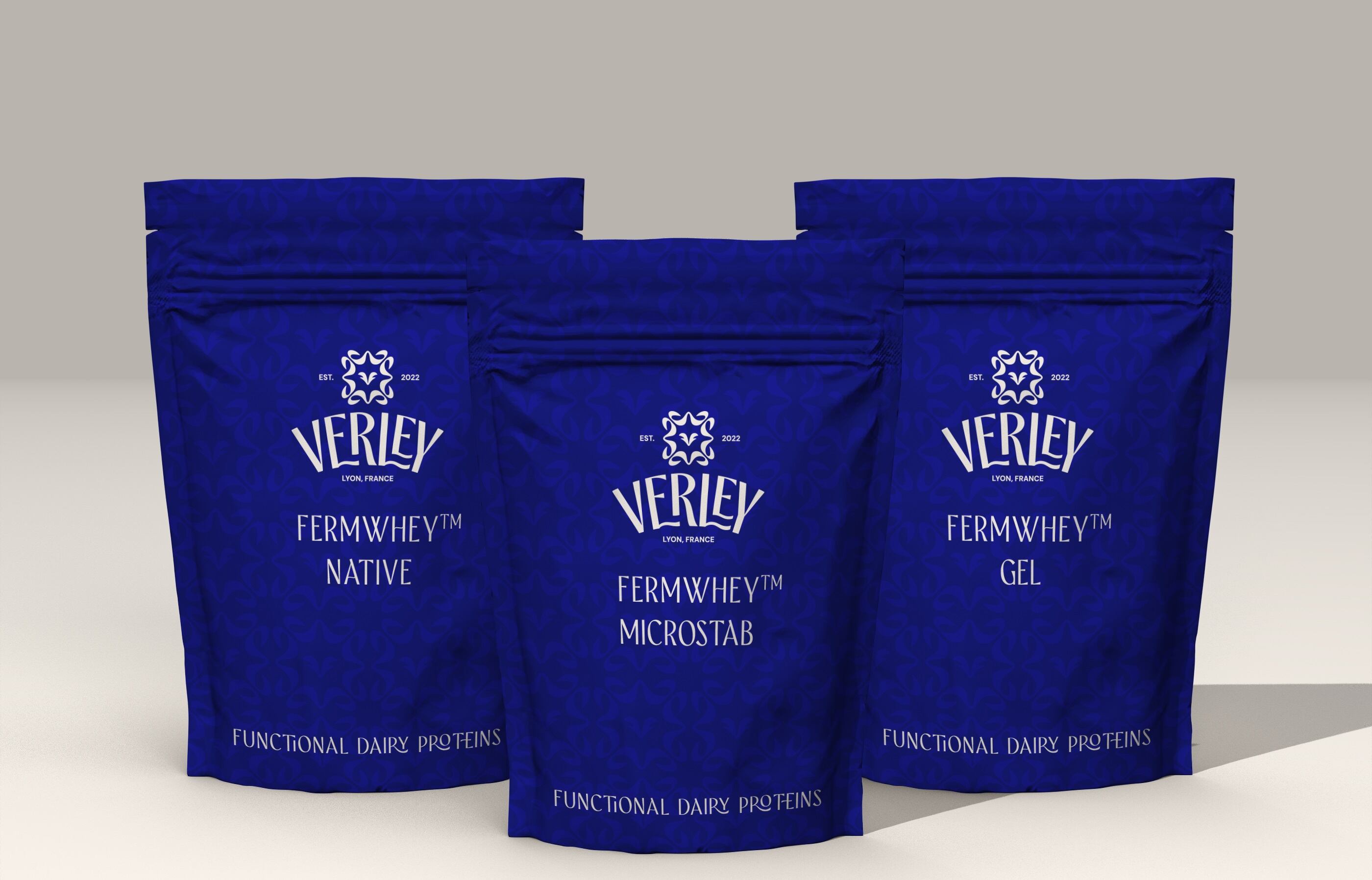The B2B animal-free dairy protein powders come in three formulations: FermWhey Native for sports nutrition products, FermWhey MicroStab for UHT beverages and fresh dairy products, and FermWhey Gel for spoonable dairy and cheese products.
Founders of Verley, CEO Stéphane Mac Millan and chief technology officer Hélène Briand, say their ingredient powders are not only more sustainable, stable and digestible than more traditional forms of protein, but also provide added benefits for consumers.
“Our patented functionalization technologies allow us to develop proteins with 11% more leucine than native whey protein isolates and 50% more than soy protein,” they told NutraIngredients.
“Leucine plays a central role in muscle protein synthesis and is particularly important for athletes, aging populations, and those on GLP-1 treatments […] making it a more efficient and effective source of protein for muscle maintenance and metabolic health.”

Why precision fermentation?
Launching today, Verley is a rebrand of Bon Vivant, which was founded by Mac Millan and Briand in 2022.
“Verley was born from a shared conviction that dairy proteins are essential to human nutrition, but their production needs to evolve,” they said. “This new identity better reflects our international ambitions and our position as a pioneer in functionalized dairy proteins made with precision fermentation.”
Functionalized precision fermentation dairy proteins are proteins identical to those in cow’s milk, but are produced by microorganisms instead of animals. This relatively new technology is rapidly gaining prominence due to its ability to reduce the dairy industry’s impact on the environment and enhance proteins to perform more effectively in food products.
Indeed, Mac Millan and Briand say their approach reduces greenhouse gas emissions by 72%, water use by 81%, and land use by 99% compared to conventional dairy, as well as bypassing the limitations of both traditional protein powders and plant-based alternatives.
“Traditional dairy proteins, like whey, come from cheese by-products and undergo heavy processing, which affects their structure and performance. They also lack adaptability for next-gen applications like high-protein UHT drinks or clean-label yogurt.
“Plant-based proteins often lack essential amino acids, especially leucine and lysine, and their functionality is limited in terms of solubility, gelling and stability. Both types often force brands to compromise between nutrition, taste, or texture — and that’s what Verley aims to change,” they said.
Making protein powders ‘truly usable’ in food
Verley’s range of protein powders use proprietary technologies to improve the natural performance of beta-lactoglobulin (BLG) – a whey protein found in the milk of mammals such as cows and sheep.
While FermWhey Native is designed to be used in sports nutrition supplements and nutrient-dense foods, FermWhey MicroStab features a microparticulated structure that ensures heat and acid resistance, making it suitable for UHT beverages and fresh dairy products.
Comparatively, FermWhey Gel is designed with advanced gelling properties, allowing manufacturers to create spoonable dairy and cheese products without additional stabilizers.
While many companies produce precision fermentation dairy proteins, Mac Millan and Briand say the company is the first to launch a portfolio of protein powders developed with proprietary functionalization technologies, making them “truly usable in food”.
“[Our patented technology] is a combination of deep scientific expertise and focused execution,” they said. “It took three years of internal research and development, multiple patents and a unique tech platform to get here.”
Looking to the commercial market
As of today, the products are available for sampling and development with food manufacturers globally. However, while Verley received a self-granted GRAS (Generally Recognized as Safe) as per the FDA in late 2024, the company is currently in the process of receiving regulatory approvals (including novel food status) in Europe.
With full commercial availability expected in 2026, Mac Millan and Briand say the launch will mean manufacturers no longer need to choose between functionality and sustainability, addressing a key problem in the protein market.
“With Verley’s proteins, you can design high-protein foods that taste great, meet consumer expectations, and reduce your environmental footprint,” they said. “Our proteins enable the next generation of delicious, nutritious dairy — made more responsibly.”





